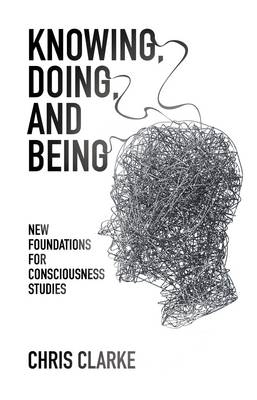
Knowing, Doing, and Being
New Foundations for Consciousness Studies
Seiten
2013
Imprint Academic (Verlag)
978-1-84540-455-0 (ISBN)
Imprint Academic (Verlag)
978-1-84540-455-0 (ISBN)
Between 1965 and 2002 several key lines of research emerged which, taken together, can potentially revolutionise our understanding of the place of consciousness in the universe. In this book the author explains the close connections between these new ingredients.
Between 1965 and 2002 several key lines of research emerged which, taken together, can potentially revolutionise our understanding of the place of consciousness in the universe. Two of these are crucial: first, the analyses of human mental processes by Barnard, and independently by McGilchrist, revealing two separate elements, one rational and one based on relationships; and, second, research by several workers linking quantum theory to consciousness in much greater detail than hitherto. Both of these investigations use an alternative logical system in order to make sense of the quantum/consciousness area. In this book the author explains the close connections between these new ingredients - connections which until now have barely been noticed. Using these insights the author set out a new foundation for consciousness studies in which consciousness is integrated with physics while retaining its qualitatively different character. Finally the book discusses how this affects our everyday approach to ecology, religion, and spiritual practice.
Between 1965 and 2002 several key lines of research emerged which, taken together, can potentially revolutionise our understanding of the place of consciousness in the universe. Two of these are crucial: first, the analyses of human mental processes by Barnard, and independently by McGilchrist, revealing two separate elements, one rational and one based on relationships; and, second, research by several workers linking quantum theory to consciousness in much greater detail than hitherto. Both of these investigations use an alternative logical system in order to make sense of the quantum/consciousness area. In this book the author explains the close connections between these new ingredients - connections which until now have barely been noticed. Using these insights the author set out a new foundation for consciousness studies in which consciousness is integrated with physics while retaining its qualitatively different character. Finally the book discusses how this affects our everyday approach to ecology, religion, and spiritual practice.
Chris Clarke gained his PhD in General Relativity at the University of Cambridge, later studying at Hamburg and York before taking up a Professorship in Applied Mathematics at the University of Southampton, leaving to work free-lance in 1999. Alongside his main work in theoretical cosmology he has published in brain physics, philosophy and religion, serving on various editorial boards including Journal of Physics A and Ecotheology.
| Erscheint lt. Verlag | 1.10.2013 |
|---|---|
| Verlagsort | Exeter |
| Sprache | englisch |
| Maße | 135 x 210 mm |
| Gewicht | 300 g |
| Themenwelt | Geisteswissenschaften ► Philosophie |
| Geisteswissenschaften ► Psychologie ► Allgemeine Psychologie | |
| Geisteswissenschaften ► Psychologie ► Verhaltenstherapie | |
| ISBN-10 | 1-84540-455-6 / 1845404556 |
| ISBN-13 | 978-1-84540-455-0 / 9781845404550 |
| Zustand | Neuware |
| Haben Sie eine Frage zum Produkt? |
Mehr entdecken
aus dem Bereich
aus dem Bereich
Techniken der Verhaltenstherapie
Buch (2024)
Julius Beltz GmbH & Co. KG (Verlag)
35,00 €


